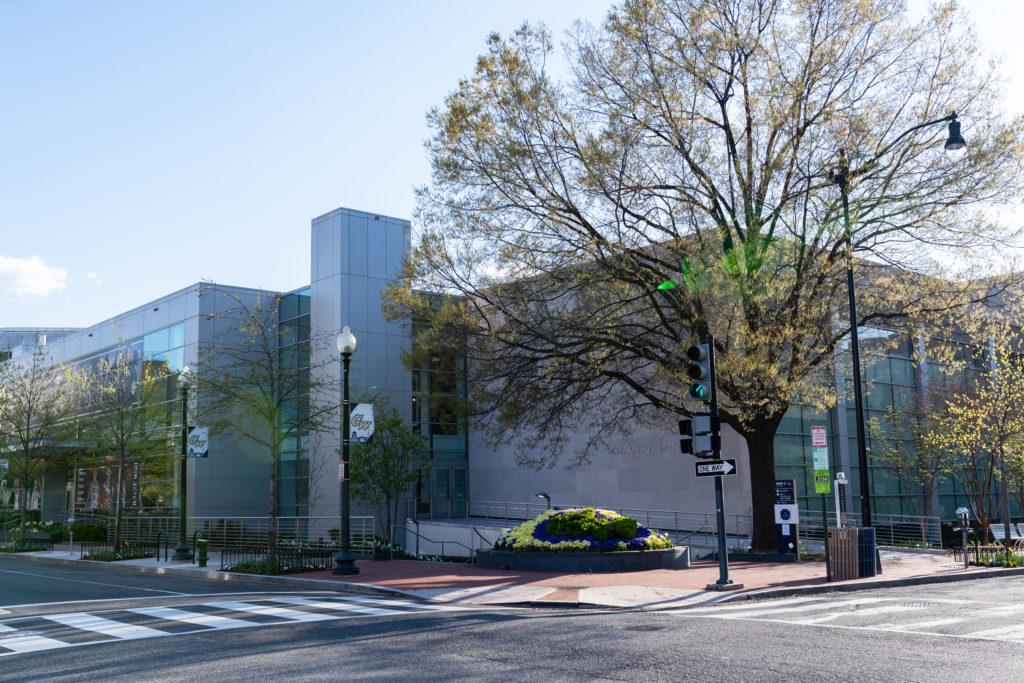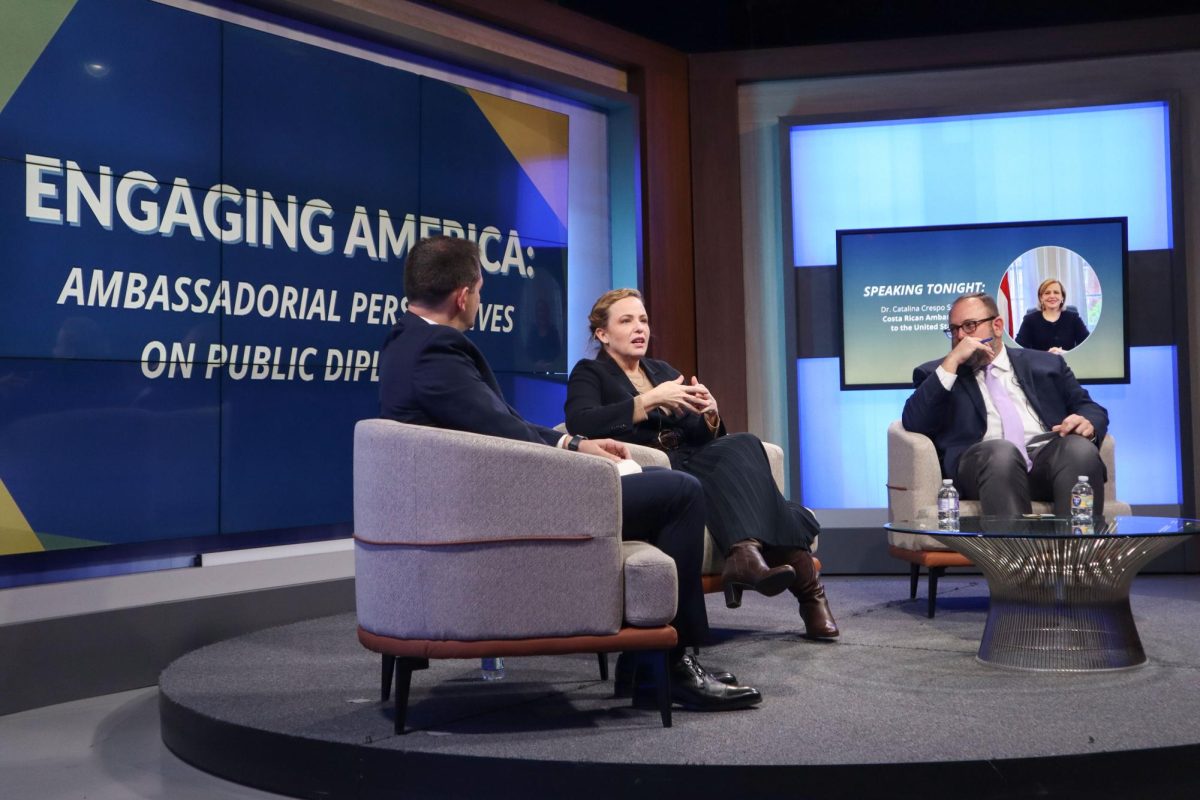Updated: Feb. 2, 2023 at 9:12 p.m.
GW again asked a federal judge to strike down a pay discrimination complaint filed against the University by a federal workplace civil rights agency in a motion last week, accusing the agency’s lawyers of breaking legal rules by failing to back their allegations with anything but the plaintiff’s “self-serving” testimony.
In the filing, the University’s lawyers ask a judge to deny the Equal Employment Opportunity Commission’s dueling motion filed last month, arguing the EEOC consistently lacks citations or uses improper or nonexistent supporting evidence, which they say fails to substantiate the pay bias allegations. The motion is the newest development in a six-year legal standoff between the parties, sparked by a former employee filing a pay discrimination complaint with the commission against the GW athletics department in 2017.
The EEOC’s initial complaint alleges former GW Athletics Director Patrick Nero hired Michael Aresco as a “special assistant” in 2016 and tasked him with similar duties as Sara Williams, the plaintiff and the former assistant to the athletics director, but for a salary more than $30,000 greater than hers. GW’s Friday motion argues that while both parties have different descriptions of the tasks Williams performed under Nero, only the University’s lawyers are providing evidence about the responsibilities, pointing out numerous factual assertions that lack a “precise citation” in the EEOC’s previous filings.
“Enough is enough. The EEOC’s flagrant disregard for the Rules throughout this litigation justifies denial of summary judgment to the EEOC,” GW’s motion states.
EEOC spokesperson Victor Chen declined to comment on the ongoing litigation.
GW’s counsel argues the commission is relying on “ambiguous” terms when describing Williams’ responsibilities to exaggerate the extent of her roles, including her involvement with onboarding new staff, submitting performance reviews, managing budgets and negotiating contracts. The University’s defense argues their arguments are supported by references to clashes between the EEOC’s claims and the record of facts.
The University’s lawyers allege the commission describes many of Williams’ responsibilities in a manner that suggests she is performing a role with more leadership than her actual duties, arguing her duties usually involved acting as liaison between members of administration rather than direct involvement.
The commission alleges Williams “coordinated” the hiring process for other athletics department officials and presentations at Human Resources staff meetings, but doesn’t define the specifics of her responsibilities – which were mostly clerical, involving paperwork and correspondence between Nero and others – according to GW’s motion.
The University’s lawyers claim the EEOC inflated the responsibilities of Williams’ jobs like “plotting agenda items” for the department’s meetings by using unspecific language, alleging that she instead simply collected items from other staff, pasted them in a Word document and awaited approval for Nero and Aresco.
“In other words, Williams exercised no independent judgment or decision-making authority, even with respect to the order in which the agenda items were discussed; that judgment and authority resided in Nero and Aresco,” the motion states.
In their argument, the University cites previous motions filed against the University in cases from 2008 and 2010, where judges had thrown out the plaintiff’s argument because of their lack of evidentiary support provided through “precise” citations.
GW’s legal team claims the commission has thus failed to produce any evidence of the University’s pay discrimination based on sex despite being advised to bring out more proof in order to “survive” summary judgment by District Judge Colleen Kollar-Kotellar when she refused GW’s motion to dismiss the case in 2018.
The commission abandoned their original argument that GW discriminated against Williams by failing to promote her to special assistant and has instead adopted allegations that the University denied Williams “opportunity for advancement,” GW’s motion states. The University argues the only of such opportunities was their denial of Williams’ request that a new position was created for her, which they say a Title VII claim could not support.
“None of the EEOC’s arguments as to how the University supposedly denied Williams an ‘opportunity for advancement’ has merit,” GW’s motion states.
This story has been updated to reflect the following:
The Hatchet updated this story to include a decline to comment from an EEOC spokesperson.










